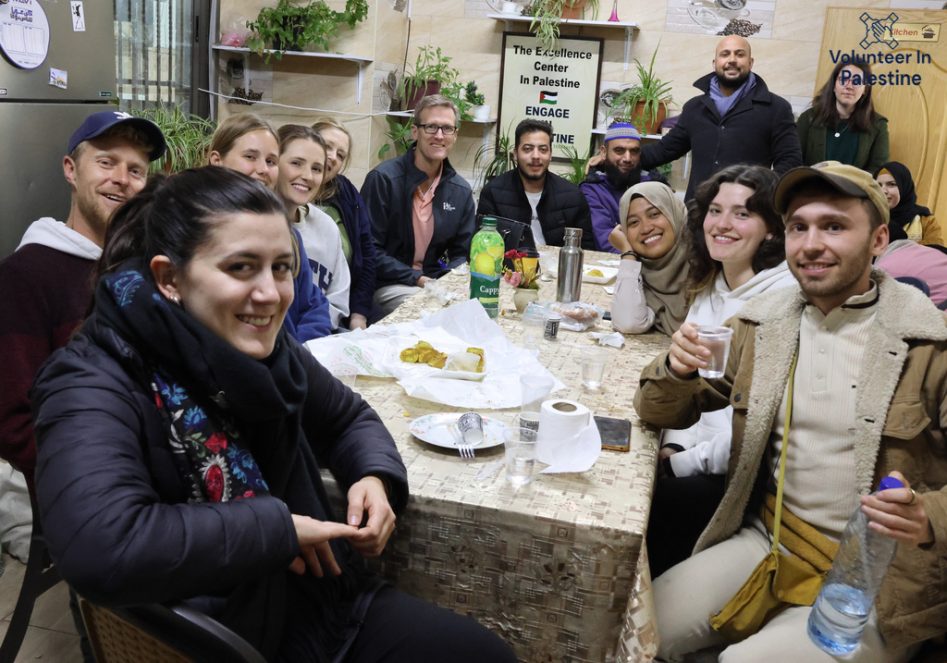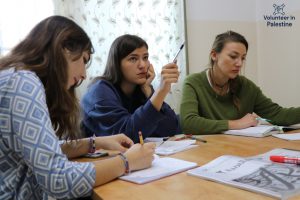Understanding the conservative culture of Hebron and Palestine is to your benefit when engaging in conversation with your host family or community members as certain topics of discussion considered normal in other countries may not be appropriate to discuss casually here. Below, you will find some friendly advice to consider during your time in Palestine:
- Respectful Conversations: Understanding the conservative culture of Hebron and Palestine is essential when engaging in discussions with your host family or community members. Some topics considered normal in other countries may not be appropriate to discuss casually here.
- Religion and Culture: While discussions regarding religion and culture are generally acceptable, sensitivity to challenging aspects of both in conversation is advised.
- Private Matters: Conversations about or involving sex and sexuality are considered private matters and should not occur within social situations. If you are not well-versed in or do not wish to discuss Islam’s perspective on these topics, it’s advisable to avoid or excuse yourself from such discussions.
- Approach to Political Topics: Be cautious when discussing the Palestinian-Israeli conflict. Initiating political discussions or debates is generally discouraged. While Palestinians may share their experiences under occupation, be mindful of your surroundings and the potential risks of openly discussing the conflict due to the Israeli presence in Hebron.
- Classroom Conduct: In educational settings, teachers should maintain professionalism at all times and should refrain from incorporating taboo topics into activities and discussions.
Gender-Specific Norms
International participants should be aware that Hebron is the most conservative city in the West Bank, leading to a variety of norms governing relations between and among genders.
- Men generally do not shake hands with women, unless she extends her hand first. Instead, it is common to wave or touch your hand to your chest while greeting the opposite sex.
- In the evening, male and female internationals should avoid the appearance of impropriety. For example, male volunteers living in the apartment should not invite female participants over regardless of purpose (even, for example, to eat dinner). All sexual relationships between international visitors and locals or other international visitors is strictly discouraged.
- Most people in Hebron do not develop close friendships with members of the opposite sex outside of their family, so don’t be surprised if many social activities are somewhat sex segregated. For instance, male students are more likely to invite the male international volunteers to explore the city with them and female students are more likely to invite the female international volunteers to go shopping with them.
Know that you may not be afforded the same legal protections as you may be accustomed to in your home country. For instance, Palestine does not have laws protecting LGBTQ+ individuals from homophobic harassment. As a result, it is best to keep your sexuality discreet.
For female internationals, you may notice you are getting a lot of attention while walking down the street. Hebron is not a particularly touristy city so locals are not always used to seeing western women. Appropriate dress will alleviate some of this discomfort, though it will not completely eliminate it. Additionally, walking at night, especially by yourself, is not advised. Women in Hebron do not generally walk in the streets alone after dark, so doing so is likely to make you stand out. It is best to be as safe as possible and get a taxi or ask for a ride from someone you know. If you decide to take a private taxi, make sure to take a yellow one.
In conclusion, while exploring and engaging in the vibrant culture of Palestine, it’s important to be mindful of cultural sensitivities and practice respect in your conversations and interactions. By adhering to these friendly guidelines, you can create meaningful connections and ensure a positive and enriching experience during your time in Palestine.



